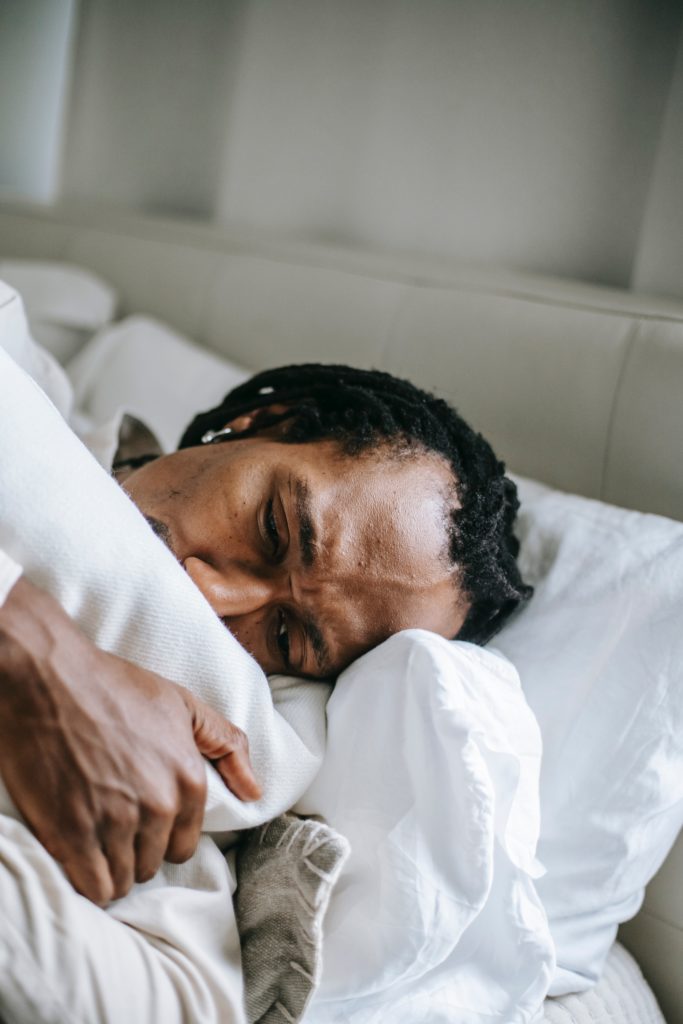
Anxiety
Anxiety is the most common behavioral health condition in the U.S., yet only a fraction get the treatment they need.

Anxiety is the most common behavioral health condition in the U.S., yet only a fraction get the treatment they need.
It’s strange to consider it now, but the physical and emotional effects of stress originally served a purpose. For example, when our distant ancestors were confronted by danger — a saber-toothed tiger, for example — their brains would respond by releasing stress hormones, adrenaline and cortisol. These hormones are integral to the body’s “fight or flight” response. They cause the heart pound faster, blood pressure to increase, and the senses to remain on high alert as our ancestors prepared to fight the tiger — or, better yet, run away from it. While our daily lives rarely call for confrontation with saber-toothed tigers anymore, the fight or flight response is still useful in situations of legitimate danger.
However, everyday stressful situations — such a missed work deadline or a traffic jam — can evoke the identical fight or flight response. When this response becomes over-engaged, it can lead to persistent feelings of heightened alertness, stress and anxiety.
People struggling with anxiety may reach for drugs or alcohol to help them minimize the unpleasant symptoms of their disorder. Self-medication with substances allows for an artificial and temporary sense of calm. Unfortunately, the benefits of drugs and alcohol are short-lived, and the strategy inevitably backfires. Here’s why. As the drugs and alcohol begin to wear off and withdrawal symptoms begin to set in, anxiety symptoms do too. As your dependence on drugs and alcohol gets more intense, so do the withdrawal symptoms — which include anxiety. Active addiction is often accompanied by a powerful sense of isolation and shame, which can create anxiety in its own right.
The good news is that anxiety can be treated through a variety of effective, non-addictive ways that don’t involve alcohol or drugs.
We are committed not only to achieving the best outcomes for our clients, but to measuring those outcomes. Based on outcome studies, NBH clients who stayed in treatment at least 30 days or longer experienced reduced symptoms of depression, anxiety, and trauma as well as improvements in daily functioning.

As many as 18 percent of people in the U.S. suffer from anxiety disorders. If you happen to one of them, you likely know the physical signs of anxiety from personal experience. Some of the most noticeable symptoms include:
While the physical symptoms of anxiety are more obvious, the emotional signs can be more difficult to identify. You may experience an overwhelming sense of fear for months at a time.
You may have difficulty socializing, managing relationships, and maintaining your responsibilities at home, work, or school. Self-medicating behaviors are common among those with untreated anxiety disorders. As a result, many become addicted to their substance of choice.

Dual diagnosis anxiety and addiction are among the most common disorders we treat at Niznik Behavioral Health. There are many effective ways to treat anxiety and substance abuse that occur together.
All of our rehab facilities offer a variety of therapy techniques for anxiety. Depending on the location, you may encounter cognitive behavioral therapy, dialectical behavior therapy, trauma therapy, music therapy, art therapy, and much more. In addition, our wellness curriculum teaches you innovative ways of managing your anxiety without the need for drugs or alcohol. As you undergo your recovery journey, you’ll form new friendships based on mutual understanding — which not only provides a strong support network, it also helps to alleviate your anxiety.
You deserve to find peace and healing. Niznik Behavioral Health looks forward to helping you discover a new beginning.
By submitting this form you agree to the terms of use and privacy policy of the website. We respect your privacy. By sharing your phone number, you agree to receive texts from us – including details about your benefits. Message and data rates may apply. Sharing this information is not a condition of treatment.